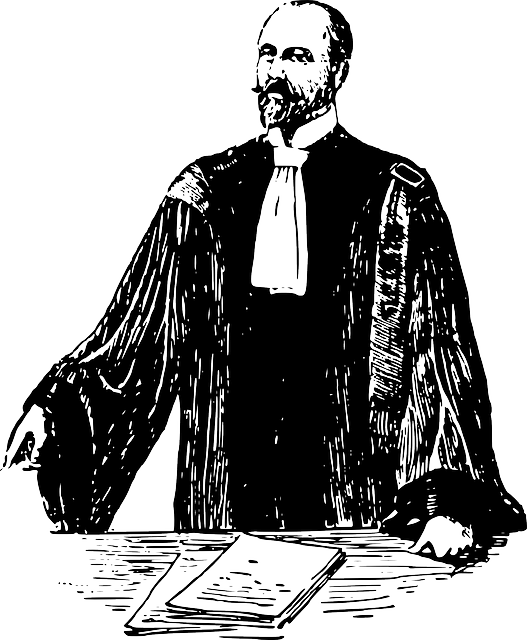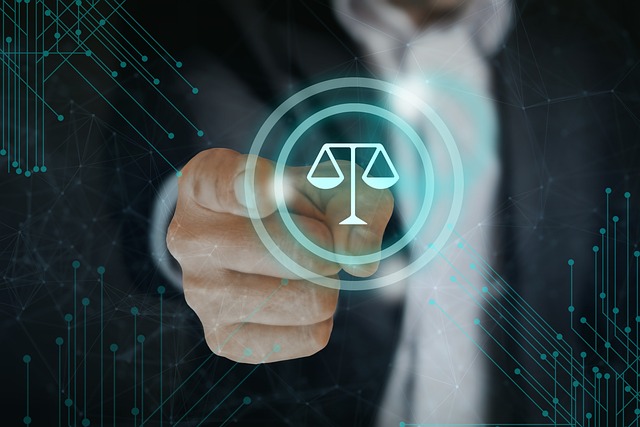Criminal Defense Attorneys are vital guardians of fairness within the justice system, specializing in complex legal navigation, especially during critical phases like arraignment and trial. They ensure clients' Miranda Rights, including silence and legal representation, are understood and protected against state overreach. This is crucial for fair trials, particularly in white-collar crime cases where it can influence outcomes significantly. By balancing legal expertise with ethical considerations, these attorneys cater to diverse backgrounds, foster trust, and contribute to an equitable justice system. They leverage strategic tactics, knowledge of law, and a deep understanding of Miranda Rights to secure the best possible outcomes for clients facing criminal charges.
Criminal Defense Attorneys play a pivotal role in ensuring fairness within the criminal justice system. Understanding their multifaceted responsibilities is crucial, especially regarding the Miranda Rights—a cornerstone of due process in criminal proceedings. This article delves into the intricacies of these attorneys’ roles, exploring key aspects like the significance of Miranda Rights, the timing and mechanisms of their reading to suspects, as well as challenges and effective strategies they employ.
- Understanding the Role of Criminal Defense Attorneys
- The Importance of Miranda Rights in Criminal Cases
- When and How Are Miranda Rights Read to a Suspect?
- Challenges Faced by Criminal Defense Lawyers
- Strategies and Tips for Effective Criminal Defense Representation
Understanding the Role of Criminal Defense Attorneys

Criminal Defense Attorneys play a pivotal role in ensuring fairness within the criminal justice system. Their primary duty is to protect the rights of individuals accused of crimes, serving as a safeguard against potential state overreach. These attorneys are instrumental in navigating complex legal landscapes, especially during crucial stages like arraignment and trial. By understanding the nuances of Miranda Rights in Criminal Proceedings, they can effectively counsel their clients, ensuring their rights are observed and respected throughout the entire process.
Beyond legal representation, these professionals also contribute to the general criminal defense strategy, often advocating for their clients’ best interests within the confines of the law. Their work extends beyond the courtroom, fostering connections with philanthropic and political communities that can offer support and resources to those facing criminal charges. Ultimately, their dedication lies in fighting for justice, not just for his clients but also for maintaining a balanced and equitable legal system.
The Importance of Miranda Rights in Criminal Cases

In criminal proceedings, understanding and upholding the Miranda Rights is paramount for both defendants and their attorneys. These rights, established by the U.S. Supreme Court in Miranda v. Arizona, ensure that individuals under arrest are informed of their constitutional privileges—the right to remain silent, the right to an attorney, and the consequence of waiving these rights. Knowing and invoking these rights is crucial for mounting a robust defense, especially in high-stakes cases like white collar defense, where an unprecedented track record can make the difference between conviction and acquittal.
Attorneys specializing in criminal defense play a vital role in safeguarding these rights. They guide their clients through the complex process of waiving or asserting Miranda Rights, ensuring that any statements made during interrogation are admissible in court. This strategic navigation is particularly essential in navigating the nuances of state and federal laws, as mistakes can have severe repercussions. By mastering these procedures, defense attorneys protect their clients’ interests, ensuring a fair trial and the best possible outcome in even the most challenging criminal cases.
When and How Are Miranda Rights Read to a Suspect?

In criminal proceedings, the moment a suspect is taken into custody or arrested, their Miranda rights must be read to them. This crucial step, mandated by the U.S. Supreme Court ruling in Miranda v. Arizona, ensures that suspects are protected from self-incrimination and have certain constitutional rights. The rights typically include the ability to remain silent, the right to an attorney, and the understanding that anything they say can be used against them in court. A qualified criminal defense attorney is often present during this process, ensuring the rights are read accurately and that any potential violations are noted for future legal strategies.
For corporate and individual clients facing charges, especially in the realm of white-collar and economic crimes, having an unprecedented track record in defending such cases can be pivotal. Skilled attorneys who specialize in these areas understand the nuances of Miranda rights application and their impact on the subsequent case. This knowledge helps in navigating complex legal landscapes, ultimately aiming to protect clients’ interests and secure favorable outcomes.
Challenges Faced by Criminal Defense Lawyers

Criminal Defense Attorneys face a unique set of challenges that require a delicate balance of legal expertise and ethical considerations. One of the most significant hurdles is navigating complex legal procedures, such as ensuring clients are informed of their Miranda Rights in Criminal Proceedings. These rights, which include the right to remain silent and the right to an attorney, are fundamental to a fair trial but can be easily misunderstood by those unfamiliar with them. Attorneys must not only protect their client’s rights during questioning but also educate them, adding a layer of complexity to an already demanding role.
Moreover, these lawyers often deal with clients from diverse backgrounds, including marginalized communities and the underprivileged. Understanding and addressing the unique needs and challenges within these populations is crucial. By delving into both legal intricacies and societal factors, criminal defense attorneys strive for winning challenging defense verdicts while also fostering trust and support from the philanthropic and political communities, ultimately contributing to an equitable justice system with an unprecedented track record of success.
Strategies and Tips for Effective Criminal Defense Representation

A successful criminal defense attorney must employ strategic tactics to ensure the best possible outcome for their clients. One key aspect is understanding and utilizing the Miranda Rights in criminal proceedings. By advising clients on their rights to remain silent, the right to an attorney, and the potential consequences of waiving these rights, attorneys can protect their clients from self-incrimination. This foundational knowledge is crucial for building a robust defense strategy.
In addition to navigating constitutional rights, effective representation involves thoroughly examining the evidence against the client. This includes reviewing police reports, witness statements, and any physical evidence to uncover weaknesses or inconsistencies. By doing so, attorneys can construct a compelling narrative that challenges the prosecution’s case. Moreover, focusing on details unique to each case—such as alibi witnesses, expert testimony for complex charges like white-collar and economic crimes—is essential for crafting a strong defense. This tailored approach ensures that every client receives personalized legal counsel, enhancing the chances of a favorable outcome in even the most challenging circumstances.
Criminal defense attorneys play a pivotal role in ensuring fairness within the criminal justice system. By understanding their unique responsibilities, from protecting Miranda rights to navigating complex legal strategies, these professionals safeguard individuals facing criminal charges. Understanding these processes, as highlighted by the discussion on Miranda rights and various challenges, equips both lawyers and the public with knowledge crucial for effective defense representation.






